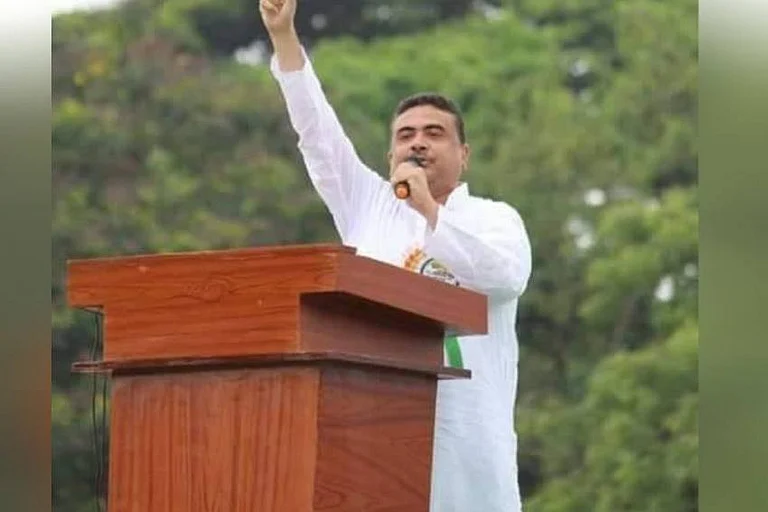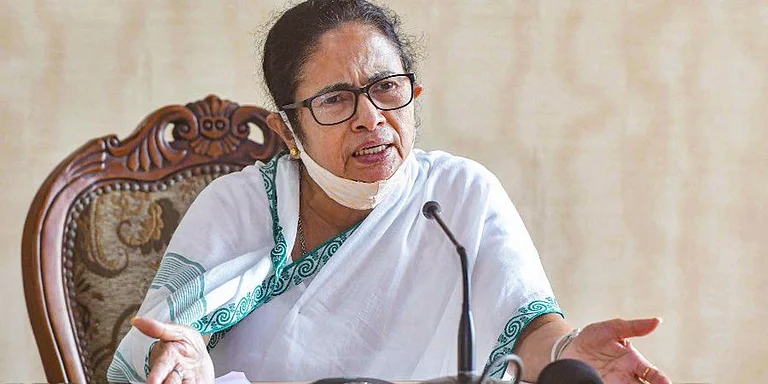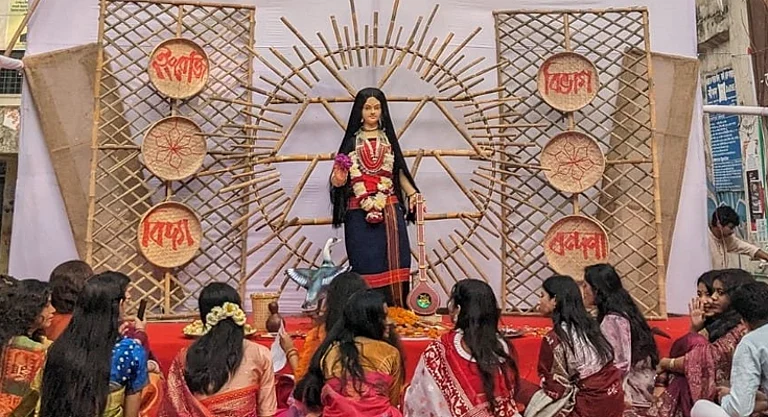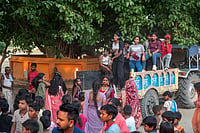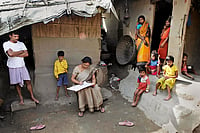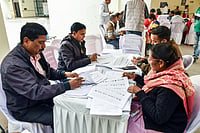The Indian government has notified the rules for the Citizenship Amendment Act (CAA) just before the Lok Sabha elections. Since then, there has been a louder advocacy for the implementation of the National Register of Citizens (NRC) in West Bengal, Bihar and Jharkhand.
On the evening of March 11, this law was officially notified to be implemented. This law will grant Indian citizenship to refugees from Hindu, Sikh, Jain, Christian, and Parsi communities who have taken shelter in India from neighbouring countries. However, the BJP has accused three states of infiltration by Bangladeshi migrants and is demanding the implementation of the NRC in these states.
In the areas of West Bengal, Bihar and Jharkhand where the BJP claims to be affected by Bangladeshi infiltration, the high population density consists of Shershahbadia Muslims, who have been accused of being Bangladeshi infiltrators.
As per various organisations, there is a significant population of Shershahbadia in different districts of Simanchal, including Kishanganj and Purnia in Bihar; Malda, Murshidabad, North Dinajpur, Birbhum of West Bengal; as well as in Sahibganj and Pakur districts of Jharkhand. According to their claims, their population exceeds four million in these states.
According to Mohammad Iqbal of the All India Shershahbadia Association, Bihar, West Bengal and Jharkhand, which are frequently targeted over Bangladeshi infiltration, have a high population of Shershahbadia Muslims, and this problem is even more acute in Santhal Pargana.
Speaking to Outlook after the CAA notification was released, Anant Ojha, a BJP legislator from Rajmahal constituency in Sahibganj district of Jharkhand’s Santhal Pargana, says, "Now NRC will be implemented. We have been consistently demanding this. It is not an electoral issue for us, but this matter will certainly be raised among the people. In the bordering areas of Jharkhand with West Bengal, there has been an influx of Bangladeshis. Illegally, people have been staying there. NRC will identify them.”
Ojha also mentioned that the CAA will validate long-term refugees, including those in Jharkhand and across the country.
While Mohammad Iqbal, associated with the All Jharkhand Shershahbadia Association, believes that after the implementation of the CAA, the concerns of Muslims in Santhal Pargana, especially Shershahbadia Muslims, will increase. He tells Outlook, "There was already a sense of fear among Shershahbadia Muslims in Santhal Pargana. After the implementation of the CAA, their fear will escalate because BJP members are exerting pressure to implement the NRC. The district administration of Sahibganj and Pakur does not consider their documents as valid. Hence, their fear is natural."
Iqbal further states, "In approximately 25 panchayats of three blocks in Sahibganj, around 85% or more of the population comprises Shershahbadia Muslims. They came here about 150 to 100 years ago when the Ganga was diverted, especially from the regions of Bihar and Bengal. They settled here during that time, and the local landlords allotted them land by providing leases. Based on this settlement, after independence, they were registered in the Joint Bihar Register two in 1956. Then the registration of their lands, mutations, and receipts started. However, in the survey initiated in Santhal Pargana in 1980, their land and village were not considered settled, leading to significant distress for them since then."
Iqbal says that BJP ministers and leaders have so extensively raised the issue of infiltration in Santhal Pargana that the administration has ceased issuing receipts for the homes and lands of Shershahbadia Muslims for the past three years. Furthermore, the issuance of caste certificates for Shershahbadia Muslims under the OBC category has also been halted since 2012.
Iqbal further mentions that he and his organisation have submitted memoranda to the district administration several times since then, demanding settlement and land surveys. The Jharkhand Shershahbadia Association claims that there is a population of 6-8 lakh Shershahbadia Muslims in Santhal Pargana.
It is noteworthy that protests against the CAA have continued across the country since 2019. As soon as the notification for the CAA was announced, another wave of protests against it renewed. Trinamool Congress's national president and Chief Minister Mamata Banerjee said that it is BJP's election propaganda, and they will oppose it. Meanwhile, Congress leader Jairam Ramesh questioned why it took the Modi government four years and three months to notify the rules for the CAA, passed by Parliament in December 2019. He said that it appears that the government timed it strategically around elections. AIMIM chief and Hyderabad MP Asaduddin Owaisi has labelled it divisive and targeting Muslims. Delhi Chief Minister Arvind Kejriwal and Samajwadi Party's national president Akhilesh Yadav have portrayed it as BJP's election campaign and an attempt to divert from real issues.
Senior journalist Madhukar believes that the purpose of announcing the rules for the Citizenship Amendment Act (CAA) just before the general elections is crystal clear that BJP aims to completely secure the Hindu vote. Madhukar says, "In Jharkhand, now BJP will vigorously raise the issue of NRC and Bangladeshi infiltration. Before the previous Lok Sabha elections, they diverted attention by abolishing Article 370 in Jammu and Kashmir, securing the Hindu vote. This time, it's about the consecration of Ayodhya's Ram Lalla and now the announcement of CAA rules. Despite the breakup of the India alliance, I believe there is pressure on the BJP. Therefore, they do not want any shortcomings in the Hindu consolidation. In this sequence, the step of implementing CAA has been taken."
Madhukar believes that there is a problem of infiltration in the states of West Bengal and Jharkhand. However, no political party seems to be serious about the issue as they only prioritise vote bank politics.








